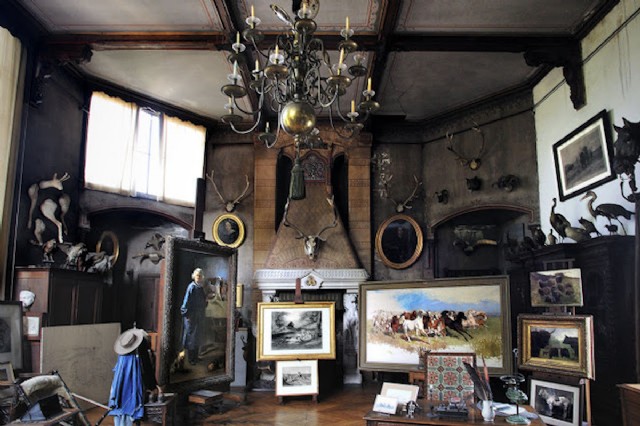Summer Rain Poem by Jared Carter
Summer Rain
One of life's simplest moments: the approaching of the first few drops of a summer rain. That it was coming, all along, and had been predicted since mid-morning, by neighbors pointing to the dark western sky, and by the agitation of robins, and the unusual silence of cicadas - all that was conceded, and understood, while the rain itself would be welcomed, for it would cool the trees and the houses and the grass, and nourish the creatures of the earth in its invisible and lasting way.
Certainly it was expected, and yet as I sat there reading, being drawn into a faraway world, I had entirely forgotten the roof and the porch, and the parched streets, and even the increased tempo of the wind blowing through the trees - and suddenly there it was, that sound, those drops scattering, nothing overwhelming, just the announcement, the presence, of rain come at last.
It is a summer rain, too, which is of course the best kind. Rain is too slow and drizzly in the spring, too cold and unforgiving in autumn. Only in summer does it rain for five or ten minutes, allow the sun to come out and turn everything fresh and vibrant, and then rain again, and make thunder, too, as if to show that such weather has come for the afternoon, and has many moods to express, and additional nooks and crannies to explore.
But it is the coming of the first drops that concerns me here, for invariably I forget that sound, and with equal inevitability I remember, when I first hear it, those summers long ago, when I lived in the little village of By, which was just up the road from Thomery, and not far from Moret, on the high left bank of the Seine, where all the houses were made of gray stone, and all the streets were irregular and narrow and wound their way along the ridge overlooking the river.
During those long and peaceful summers rain came out of the vast Forest of Fontainebleau, immediately behind our house, with the regularity of deer or even peccaries wandering into someone's garden, browsing for a while, then moving on, down the slope to the bridge, across the broad presence of the river, and up the other side. Rain came along those cobbled streets, and off those tiled roofs, and ran from those lead gutters and ancient downspouts.
Rain came through the branches of the great chestnut trees lining the streets, and found its way into narrow vineyards contained within the stone walls, where the villagers grew a special kind of white dessert grape that was available only from experienced growers who lived in that little town - persons who had been raising such grapes for decades, and who passed on their green secrets from father to son, mother to daughter, down through the generations.
Rain came, finally, to the turrets and towers of the old chateau that stood only a few courtyards away from the house where we lived - the Chateau of By, which had been a-building for several centuries, and which had undergone wars and revolutions and a long succession of different owners, and which stood empty during the years I lived on that street, but could be visited, for an hour or an afternoon, if one knew on which door to knock, to ask the concierge for the key.
How often we did that - obtained the key, and passed through the grate of the iron door to the side of the main gate, and crossed the courtyard, and used the key to let ourselves in through the front door. If you have read Le Grand Meaulnes, by Alain-Fournier, or Sylvie, by Gérard de Nerval, you would know something of our excitement. Both stories describe the experience of visiting a lost, enchanted place, one to which you will likely never again return.
We were entering the world of the 1880s and 1890s, the home and the studio of a prominent artist, Rosa Bonheur, the painter of animals, whose tools and artifacts had all been left intact and untouched in those many rooms, as though she had only moments before put down her brush, and her palette, and gone out into the garden.
Everything was still there; everything remains now. In the main atelier, with the huge easel and the unfinished portrait, and the enormous fireplace beneath the stag's head, and all the casts and clay figurines and small souvenirs of a lifetime, I remember most of all the music box from the nineteenth century, activated by circular metal plates in which tiny square holes had been punched. A primitive kind of record player, predating sound recording, but still able, when I wound the crank, to emit the tinny, mechanical strains of an ancient waltz that whirls the children round and round the carrousel.
Each note, then, sounded like a single drop, and the pattern of silver tones was like the drops of rain undoubtedly beginning to fall outside in the trees, and down through the leaves, and onto the stones of the courtyard, and along the tiles of the roof, and from the mouths of stone gargoyles.
The notes and the drops of rain made a music, and it was like that of memory itself, coming from a great distance, and long ago, and yet I still recall those moments, and think of them each time I hear rain coming again - rain that arrives out of nowhere, bestowing its blessing and its clean smell, and its promise of time passing, and time that in a few remote and enchanted places still remains unmoved and unchanging.
First published in Poetic Diversity.

It is a wonderful portrayal. It has everything- nature, history and sweet memories. Thanks for sharing: 'predicted.. by neighbors. and by the agitation of robins, and the unusual silence of cicadas.. The notes and the drops of rain made a music'.
This poem has not been translated into any other language yet.
I would like to translate this poem
Wonderful rhythm of rain in prose. Thanks